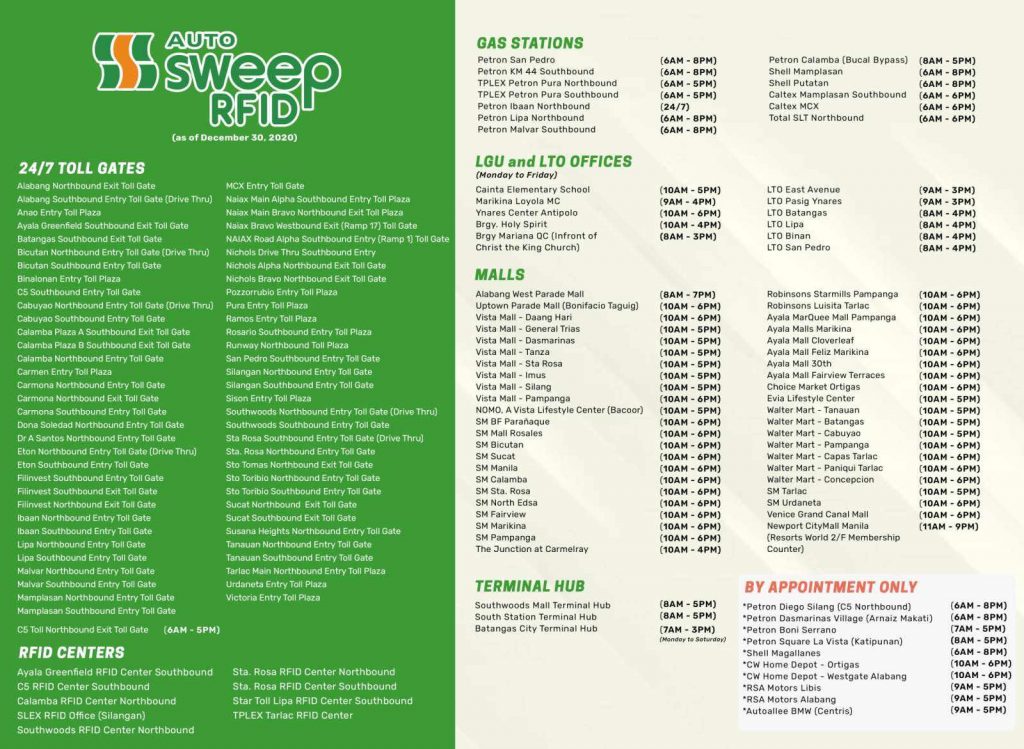San Miguel Corp. (SMC) recently announced that it has reached its target of opening 156 radio frequency identification (RFID) installation sites in more locations, particularly in offsite areas, in order to accommodate more motorists.
“Back in November, and again in mid-December, we committed to open over 100 new RFID stations in various locations before end of the year. Even as we were preoccupied with soft-opening our Skyway 3 and then had a long New Year’s break, I’m happy to report to the public that we also reached our target 156 Autosweep RFID installation stations, last Dec. 29,” SMC president and chief operating officer Ramon S. Ang said in a statement.
“With our continuous rollout of additional RFID stations which started November, and the completion of our target 156 stations by end-December, we’re no longer seeing long lines at the stations. We will continue to serve and accommodate all motorists wanting to install their free Autosweep stickers as we approach the January 11 full implementation of cashless toll collection on all expressways set by government, and even after that” he added.
SMC, which operates the Southern Tagalog Arterial Road (STAR) Tollway, South Luzon Expressway (SLEX), Skyway, NAIA Expressway (NAIAX), and Tarlac-Pangasinan-La Union Expressway (TPLEX), said it converted all but one of its 66 dedicated “onsite” or toll plaza stations into 24/7 stickering stations.
It also now operates nine RFID centers, 18 gas station installation sites, 11 local government and Land Transportation Office (LTO) sites, and 44 mall sites. It also has stickering sites in three major transportation terminal hubs, two home builders depots and three showrooms. Eleven out of 156 installation sites are by appointment to manage traffic congestion in the areas.

Ang said that the opening of more “off-site” stickering stations, including those in malls and government offices, was a key part of the company’s strategy to reach more non-regular users of its toll roads, concentrated mostly in the south.
It can be recalled that a surge in non-regular expressway users trying to beat the government’s deadline, along with a shortage of RFID stickers—manufactured by suppliers abroad who also had to contend with pandemic restrictions in their countries—contributed to long lines experienced in October and November last year.
Ang said that while the company is expecting an uptick in RFID installation towards the end of January 11, the company is confident that there will no longer be long lines similar to the ones experienced previously, as the government’s original deadline, and extended deadline, approached.
“With the amount of stickers we have already issued over the past few months, particularly from November through December when we started increasing the number of stations, coupled with now 156 total RFID stations that are well spread out through Metro Manila and neighboring cities and provinces, we see no major problems in serving the remaining number of motorists without stickers yet,” Ang said.
“But of course, we want to reiterate that our installation activities will continue even after January 11. There is no need to panic and rush to the stations. We will retain our installation activities and even expand programs to reach villages and barangays,” Ang said.

